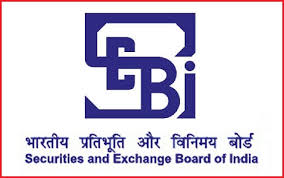 Market regulator Sebi is readying a framework for issuance of participatory notes (p-notes) from international financial services centres such as GIFT City. It is in talks with FPIs, which act as issuers of p-notes, sources said. The move comes at a time when Indian bourses have terminated licensing of indices and data-feed agreements with their foreign counterparts. This will force overseas investors to either invest directly or come through GIFT City to trade in Indian securities.
Market regulator Sebi is readying a framework for issuance of participatory notes (p-notes) from international financial services centres such as GIFT City. It is in talks with FPIs, which act as issuers of p-notes, sources said. The move comes at a time when Indian bourses have terminated licensing of indices and data-feed agreements with their foreign counterparts. This will force overseas investors to either invest directly or come through GIFT City to trade in Indian securities.
The Securities and Exchange Board of India (Sebi) is readying a framework for issuance of participatory notes (p-notes) from the international financial services centres (IFSCs) such as GIFT City. P-notes are derivative instruments that allow overseas investors to invest in a domestic security without having to directly register with Sebi. The market regulator is in talks with foreign portfolio investors (FPIs), which act as issuers of P-notes, according to sources.
The move comes at a time when Indian bourses, including the National Stock Exchange (NSE), have terminated licensing of indices and data-feed agreements with their foreign counterparts.
The snapping of ties will force overseas investors, which use platforms like the Singapore Exchange (SGX) to trade in Indian securities, to either invest directly or come through GIFT City.
GIFT City is designed like an offshore trading platform with low transaction cost. Know-your-customer (KYC) documentation for p-notes issued from the IFSC would have to adhere to anti-money laundering laws, sources privy to the development said. The regulator, however, is expected to do away with strict trading restrictions on these instruments.
At present, no p-note subscriber is allowed to take a derivatives position in
■ Sebi to soon come up with a framework for issuance of p-notes from IFSC, Gujarat
■ The KYC documentation for p-notes from IFSC is likely to be on parwith p-notes issued by on-shore FPIs
■ However, Sebi is expected to relax the trading restrictions on p-notes issued from IFSC
■ On-shore subscribers of pnotes are not allowed to take any position in the Indian derivatives market
■ Indian stock exchanges recently terminated
the market for any other purpose apart from hedging. Also, there are restrictions on transfer of p-notes from one investor to another. According to experts, since the IFSC is a typical offshore destination where only derivatives are traded, Sebi is open to a less-stringent licensing of indices and data-feed agreements with foreign bourses
■ FPIs looking to invest in India can either invest directly or through the IFSC GIFT City, which offers tax benefits and liabilities
“Sebi recently conducted a meeting with some of the big FPIs that had sought the regulator’s permission to issue p-notes from the IFSC. The idea was to provide an entry to those investors who had lost trading opportunity due to the closing of offshore derivatives trading platforms like the SGX,” said another source privy to the development.
There was still a huge appetite among global funds for instruments such as p-notes because these did not amount to direct exposure, experts said. Despite the high KYC requirement, pnotes are still handy for investors that do not want to have a direct exposure to the Indian market due to restrictive laws in their own countries. P-notes also offer a cost advantage for funds that invest a marginal amount of their portfolio in Indian securities.
“The initial rules for p-note issuance from the IFSC could be much simpler with fewer restrictions on issuers since the whole concept was at an evolutionary stage. Once the instruments gain traction, the regulators concerned could consider tightening rules further,” said Tejesh Chitlangi, partner, IC Legal Universal.
The share of p-notes in total FPI investment has gone down significantly in the last decade with Indian regulators cracking down on their misuse. A decade ago, p-notes accounted for half of total FPI inflows. Now they just account for just 3.7 per cent.
Sebi in 2016 tightened KYC norms for p-notes. P-note issuers were asked to follow Indian anti-money laundering rules. Sebi also made it mandatory for FPIs to disclose the end beneficiary of Pnote subscribers.
Source: Press Reader




